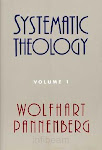Does the media reflect popular sentiment or produce it?
The question of the media's relationship with reality, whether it is reality's faithful mirror or one of its chief architects, resurfaces every now and then, especially after tragedies that are human in nature. The question is posed as a simple either/or question, but the truth, one suspects, is much more subtle and complicated. The answer to the question is certainly: both. But the more precise in and outs of the relationship remains unexpressible, at least for me.
However, one curious phenomenom can be detected.
When the question is asked in a frustrated or angry manner, as in -- "Do you not realize that your yellow journalism, your conflict-seeking headlines etc., cause strife in society and undermine public wellbeing, especially that of the young?" -- the media responds by denying responsibility and seeking refuge in the "the media reflects reality" answer.
This is a half-truth, which is to say it is a lie. The media does, indeed, reflect reality, but it also creates it.
On the other hand, when the question is asked in a sympathetic and praising manner, as in -- "What role did you have in exposing the misuse of public funding?" or "The media has helped to advocate tolerance, hasn't it?" -- the media responds by "humbly" accepting responsibility and concurs with the "the media effects reality" assertion.
So by alternating between two part-truths, two sides of a greater truth, the media can avoid blame -- yet attain praise.
But you cannot have one and not the other, because blame and praise are interdependent, and they both imply freedom, freedom to act in a proper or improper way. If you are nothing but a faithful mirror, you can earn neither praise nor blame. But if you are something more than a simple mirror, if you wield responsibility, it is possible to praise you. But if you can be praised, you can be blamed too.
1 month ago







No comments:
Post a Comment